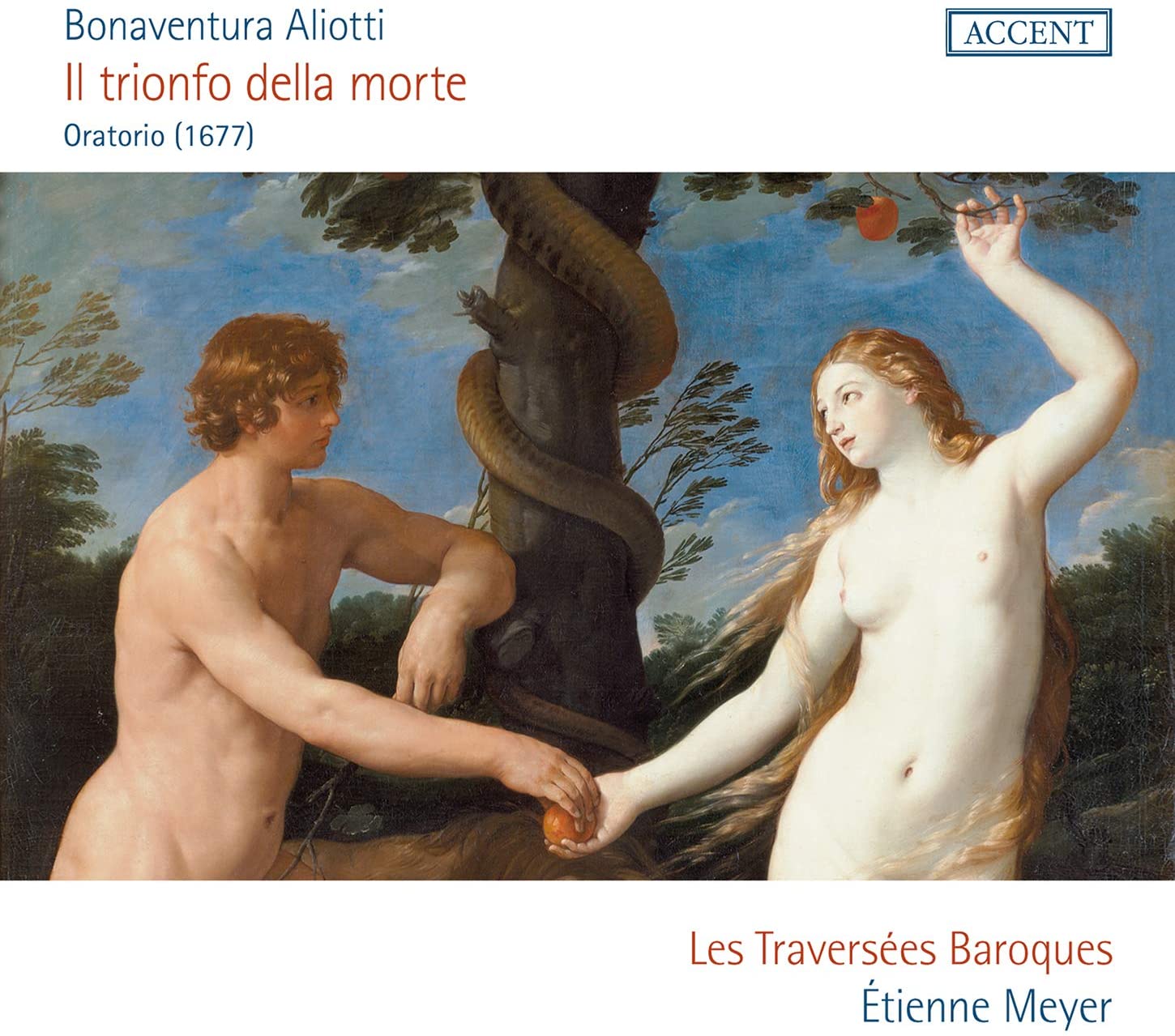Les Traversées Baroques, Etienne Meyer
94:52 (2 CDs)
Accent ACC 24368
Click HERE to buy this from amazon.co.uk
I wonder if Aliotti, the composing Franciscan friar from Palermo, had seen the fresco “Il trionfo della morte” in the Scafani Palace in the city of his birth and early years. Death, furiously mounted on a wild skeletal horse is dishing out arrows and striking down the privileged orders of society – Franciscans included – whilst sparing the common folk and musicians. It is difficult to imagine not, as this eponymous oratorio evokes the wildness and drama, and possibly sympathies, of this striking image from two centuries earlier. It bursts onto the scene with all the bounce of the baroque, and the energy continues unabated throughout – albeit through a spectrum of moods and pace. The particular elaboration of the theme taken by the oratorio is the origin of the triumph of death: the fall of Adam. It allows this two-CD extravaganza to explore every angle and nuance of the battle between reason and passion, hope and regret, good and evil. The characterisations rendered by the singers capture the tensions and vacillations perfectly – it is so wonderful and refreshing to hear performers entirely given over to the projection of the characters’ inner debates and torments, without a hint of staginess. The technical quality of the singing, playing and recording is extremely impressive: sparkling and immediate. I mentioned the energetic and attention-grabbing opening, where against the overall energy are lyrical, repeated falling phrases which presage the forthcoming story, and beautifully played by the outstanding cornettists. Also worthy of note is the end of the prima parte; the Coro di Demoni Furie Feroci – you can imagine! – culminating in a clever musical falling to earth, matter of fact, but shocking. Another is the heart-rending lament of Eve in the realisation of what has just been precipitated. In shades of Ovid’s telling of the Arethusa and Alpheus metamorphosis, she wishes to liquefy herself and disappear, trapped in a cloying whirlpool of circular harmonies from the viols; a metaphor which therefore spans the parallel religious and humanist worlds of Aliotti’s lifetime. I thoroughly recommend this recording to anyone – it is a must-listen of wide appeal.
Stephen Cassidy
